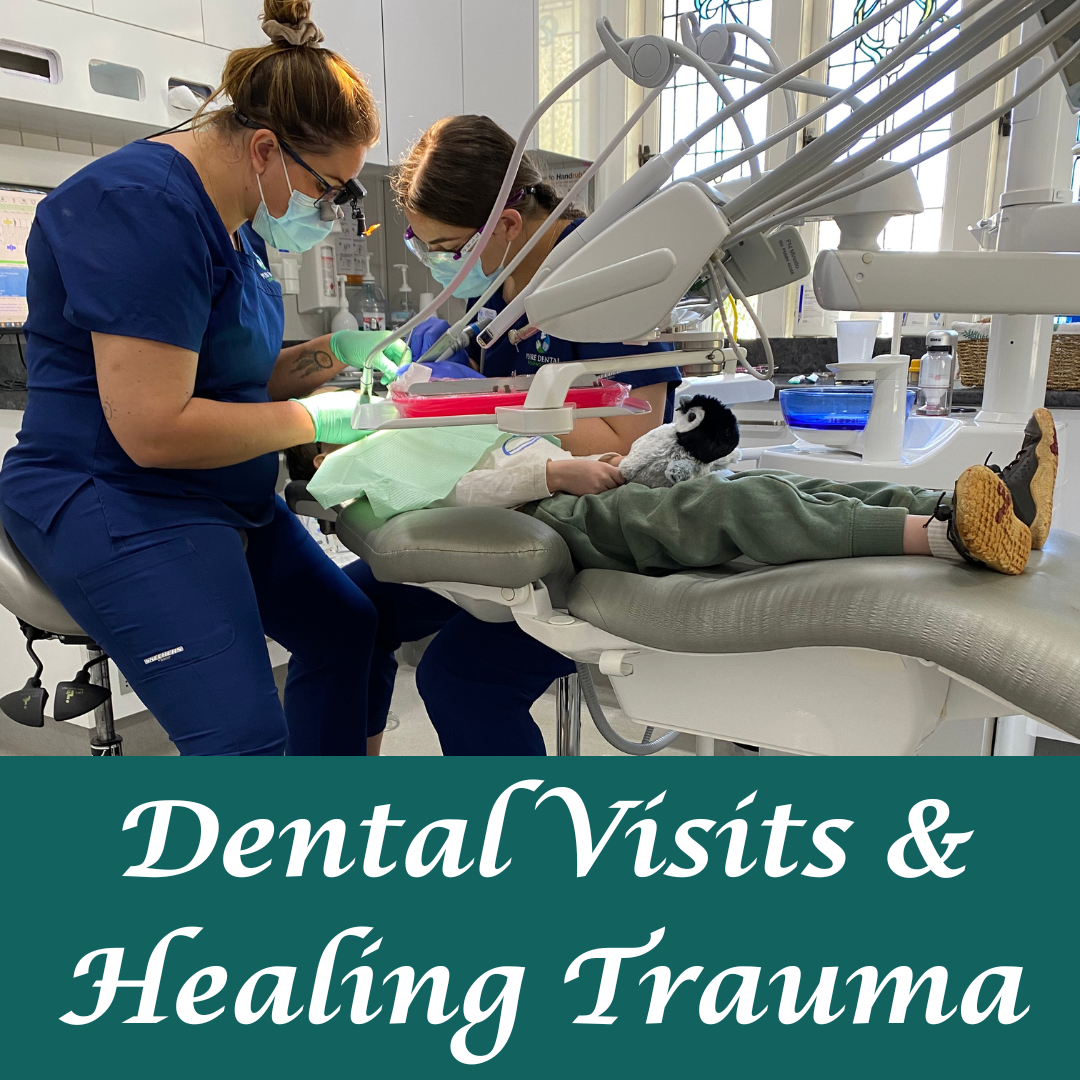Dental Visits & Healing Trauma
Recently, my youngest son had to get numerous fillings in his teeth over 4 dental visits. This is my child who has endured medical trauma due to a life-threatening medical condition he had for several years of his life. He has a strong fear of needles, understandably with the ridiculous amounts of blood tests and cannulas that pierced his arms.
Our usual dentist who he loves has been on maternity leave, and unfortunately, his teeth situation couldn't wait until she returned. So we went to a new dental practice. This dentist we found to be very judgmental, unsupportive and my son did not feel comfortable in her presence.
I then sourced another dental practice, and I am so glad I did.
We saw the dental hygienist, who is also the person that does children's fillings. She was nothing short of amazing. She was playful, respectful, patient and my son trusted her very quickly.
One of the things I learnt from this experience, was that as a society, we feel we need to justify everything. My son didn't need fillings because he has a poor diet, he has a very healthy diet. In this instance it was more a case of me having hyperemesis when I was pregnant with him and the crystals in his teeth didn't form properly because I was not getting enough nutrients as I was so sick and vomiting all the time.
The first dentist I saw blamed myself, and my son for the state of his teeth.
The oral hygienist on the other hand, said with compassion, "this is no one's fault. It is what it is. You don't need to justify anything to me."
This was one of the rare professionals I have found that is actually trauma-informed, and doesn't blame or shame.
In our first visit with her, she checked over my son's teeth, then she got out all the equipment she needed to use for the fillings in the following appointments. She showed us what she needed to do, using fun terms like "sleepy juice" "sugar bugs" "cake tins" and "drawing smiley faces on your teeth."
In the following appointments, she informed my son exactly what tools she was using and when; she told him to raise his left hand anytime he needed a rest; and she worked as quickly as she could.
She also spread out the visits so he didn't get "trauma fatigue" from all the dental interventions.
In a nutshell, she was supportive, she listened to feelings and she met my son's needs in anyway that she could.
We combined this with Aware Parenting practices, such as Attachment Play and listening to all the big feelings that arose with empathy. Some of the games we played was role playing dentists, where we took turns being the dentist and the patient. We threw in some nonsense play to make it silly and fun, as well as power-reversal play to counteract powerlessness, helplessness and overwhelm.
What started out sounding like a very traumatic experience, ended up being an experience that my son did not have to heal from. Yes, he did find some things uncomfortable like the local anaesthetic, dental tools in his mouth and the numbness afterwards. However, with the oral hygienist and myself working with him in trauma-informed and playful ways, he has no residual stress from 5 dental visits in less than 2 months.
The only thing he brings up now, is how much he disliked the first dentist and how glad he is we found someone he likes.
If you have the means to pick and choose from different medical professionals and to seek second and even third opinions, from my own personal experience, it is something I highly recommend.
If I'm honest, I am fussy with the people that I choose to work alongside for myself and my family. I will always go for the best fit for each of us, even if that means each of us goes to a different medical practices. Because having the right person for you, and for your child can make a world of difference to how things progress and the overall outcome.
If at any point along the journey, your child feels uncomfortable, you can speak up to that professional. If they don't respect you, or you feel judged, choose someone else. Remember, they are in service to you. You pay them for a service. If we go to the shops and purchase a faulty product, we can return it. The same is true for services.
If your child needs a medical procedure or has medical trauma already, please visit this article to see how to support yourself and your child.
